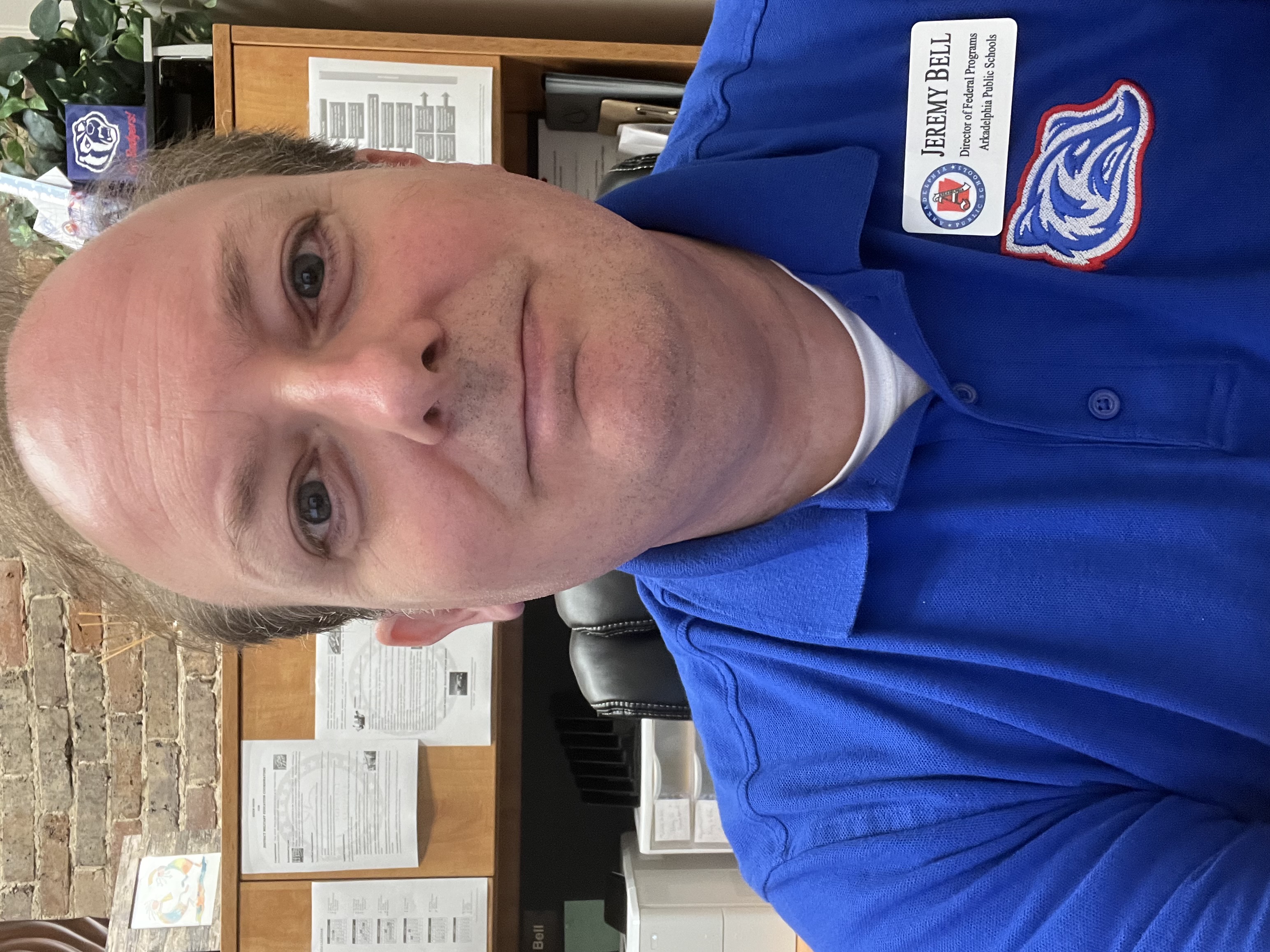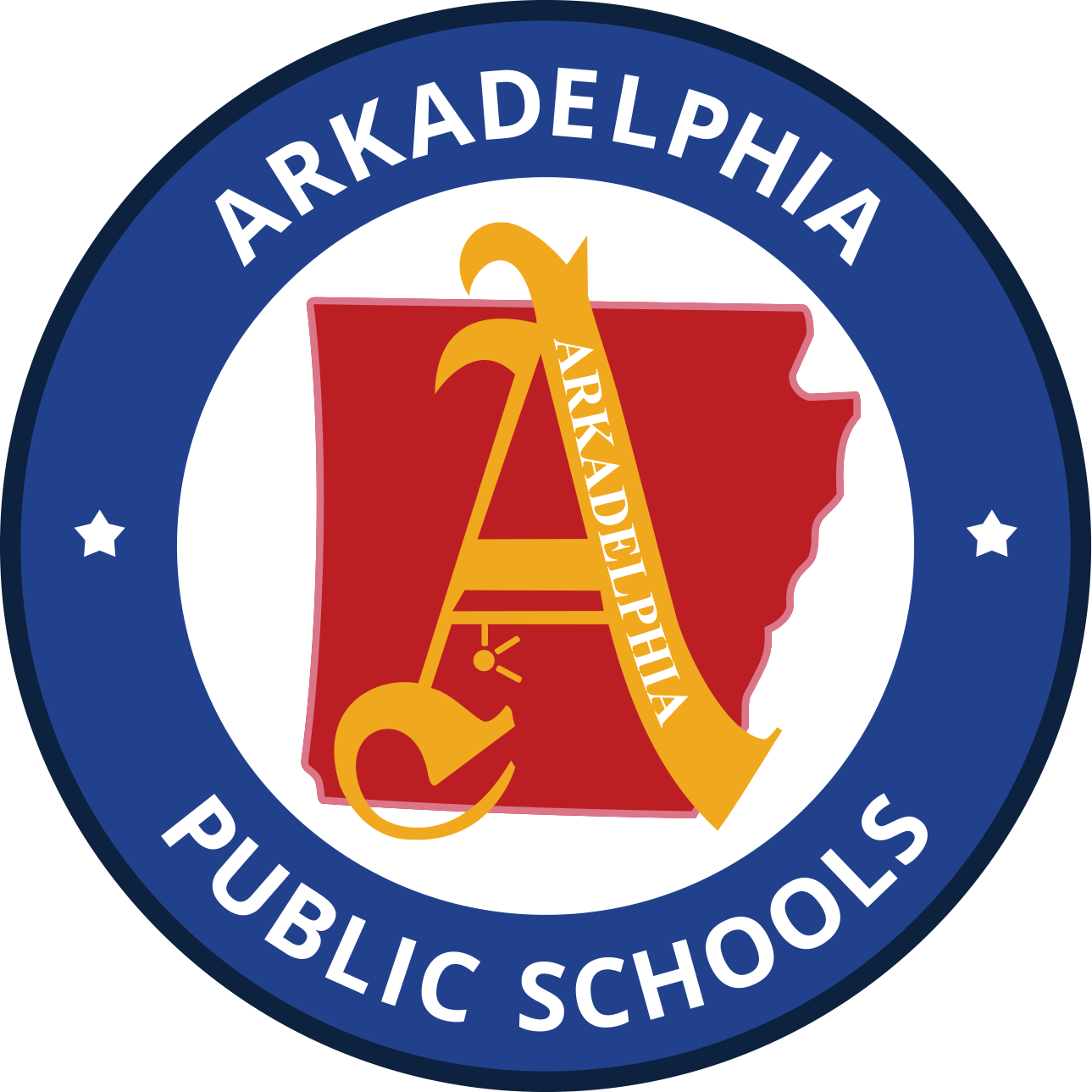Foster Care Liaison

William Jeremy Bell
Director of Federal Programs
Foster Care Liaison
700 Clinton Street, Dawson Building #3
P. O. Box 10
870-246-5563
william.bell@arkadelphiaschools.org
Welcome and Overview
Welcome to the Foster Care Liaison section of the website. Here you will find information about practices and resources to support those students experiencing foster care.
A quality education is critical to any child’s well-being and future success. For youth in foster care, a quality education depends on the support and collaboration of both the Arkansas Division of Children and Family Services and the Arkansas Department of Education. Indeed, both child welfare and education law compels each system to support the educational needs of children in foster care, as outlined in the Fostering Connections Act and the Elementary and Secondary Education Act (ESEA), as reauthorized by the Every Student Succeeds Act (ESSA).
Pursuant to Ark. Code Ann. § 9-28-113, every school district must identify a foster care liaison and must provide annually to the Arkansas Department of Education the name of each foster care liaison and his or her contact information.
The statute provides that all individuals who are directly involved in the care, custody and education of foster children work together to ensure the continuity of education services so that foster children:
remain in their schools of current enrollment whenever possible,
are moved to new schools in a timely manner when it is determined to be necessary, appropriate, and in their best interests,
participate in appropriate educational programs, and
have access to the academic resources, services, and extracurricular activities available to all students.
Specifically, the District Foster Care Liaison:
serves as primary point of contact for facilitating the transfer of records and immediate enrollment,
leads the development of a process for making the best interest determination,
develops and coordinates local transportation procedures,
facilitates data sharing with the local child welfare agency, consistent with FERPA and other privacy protocols, and
provides training to school staff on ESSA foster care provisions and the educational needs of children in foster care.
ADE and our school district are required to review and undertake steps to revise laws, regulations, practices or policies that may be barriers to the identification, enrollment, attendance or success in school of students in foster care.
District Implementation
For additional questions, contact the Federal Programs Coordinator or contact the office by phone during school hours:
Peake Elementary School at 870-246-2361
Goza Middle School at 870-246-4291
Arkadelphia High School at 870-246-7373
Currently, APSD uses the funds from this area per state and federal guidelines.
Personnel, students, their families, and other interested parties are invited to ask questions, to provide feedback, and to contribute to the process as part of our consultation with stakeholders. Therefore, we invite you to use our APSD Federal Programs Engagement Survey (feel free to provide feedback for this and any of the pertinent sections).
Additional Resources
Please let us know if you find additional resources to help our students and their families!
Arkansas Department of Human Services
Arkansas Brighter Futures 529: As a foster parent, you have a key role in establishing a successful and promising future for the child or children in your care. You can also help form a foundation built on the importance of education and create a desire for learning by investing in their educational future.
By opening an Arkansas Brighter Future 529 Plan, you can help a child prepare for opportunities at a variety of eligible institutions including colleges & universities, graduate programs, vocational and trade schools, or any apprenticeship program that is registered and certified with the U.S. Department of Labor.
Legal Center for Foster Care and Education: The American Bar Association Center on Children and the Law, the Education Law Center, and the Juvenile Law Center joined forces to provide advocacy, training, technical assistance and a central clearinghouse of information on foster care and education.
Child Welfare Information Gateway: Child Welfare Information Gateway connects professionals and the general public to timely, essential information and resources targeted to the safety, permanency, and well-being of children and families.
Casey Family Programs: Casey Family Programs works to influence long-lasting improvements to the safety and success of children, families and the communities where they live. They provide consulting services to child welfare systems; direct services to children and families; public policy resources; and research and analysis.
Child Welfare League of America: CWLA leads and engages its network of public and private agencies and partners to advance policies, best practices and collaborative strategies that result in better outcomes for children, youth and families that are vulnerable.
Foster Care to College: Online Resources: From national scholarships and state tuition waivers to housing assistance and on-campus programs, learn where to find help getting to and through college as a former foster care youth.
National Council of Juvenile and Family Court Judges: To assist juvenile and family court judges and system professionals, the NCJFCJ has developed focus areas for its professional resources that include child abuse and neglect, domestic violence, family law, juvenile justice, mental health, research, military families, technical assistance, and tribal resources.
US Department of Education - Students in Foster Care: Find resources for youth, guidance and regulatory information, and related Department of Education Programs.
Supporting School Reform by Leveraging Federal Funds in a Schoolwide Program (PDF): Non-regulatory guidance on aligning Title I and School Reform.
Education Law Center: Unlocking the Door to Learning: Trauma-Informed Classrooms & Transformational Schools (PDF): Find information on what defines trauma and how it affects children and youth.
The Effects of Trauma: Moving Toward Trauma-Informed Practice (PDF): Presentation by Project PLAY at the ADE McKinney Vento Conference of 2017.
Feedback
Please complete any surveys for any campus and for the district
APSD Federal Programs Engagement Survey (feel free to provide feedback for any of the pertinent sections)
Please consider volunteering by campus
Each campus trains its volunteers for the specific roles and/or tasks
Please let us know how we can collaborate with you more effectively

